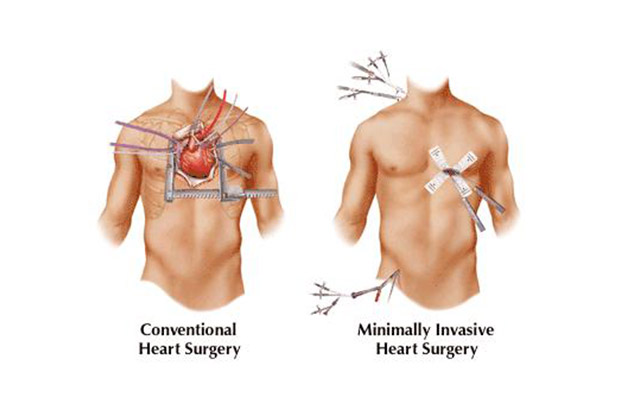Minimally invasive aortic valve replacement (MIAVR)
Share This Post Minimally invasive aortic valve replacement (MIAVR) is a surgical procedure used to replace a diseased or damaged aortic valve with an artificial

Minimal Invasive Bypass Surgery, also known as Minimally Invasive Coronary Artery Bypass (MICS CABG) or Minimally Invasive Direct Coronary Artery Bypass (MIDCAB), is a surgical procedure that allows for bypassing blocked or narrowed coronary arteries using small incisions rather than a large incision in the chest.
During the procedure, the surgeon makes several small incisions in the chest and uses specialized instruments to access the heart. The surgeon then uses a blood vessel from another part of the body, such as the chest wall or leg, to create a bypass around the blocked or narrowed portion of the coronary artery.
The advantages of Minimal Invasive Bypass Surgery over traditional open-heart surgery include:
Indications
Minimal Invasive Bypass Surgery may be recommended for patients with certain indications or characteristics. Some of the indications for the procedure may include:
Contraindications
While Minimal Invasive Bypass Surgery may offer several advantages over traditional open-heart surgery, it may not be suitable for all patients. Some contraindications for the procedure may include:
Share This Post Minimally invasive aortic valve replacement (MIAVR) is a surgical procedure used to replace a diseased or damaged aortic valve with an artificial
Share This Post Minimally invasive Surgery involve accessing the heart through small incisions, typically between the ribs or through the sternum (breastbone). This approach offers
